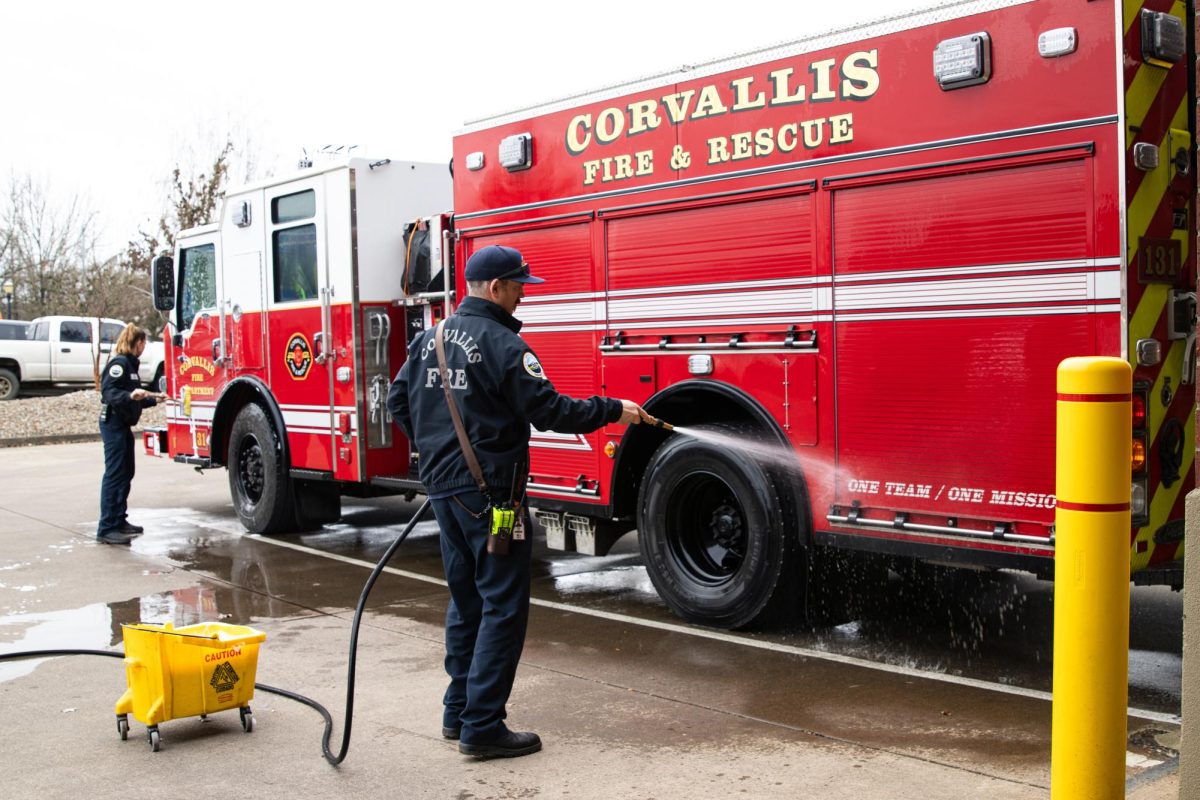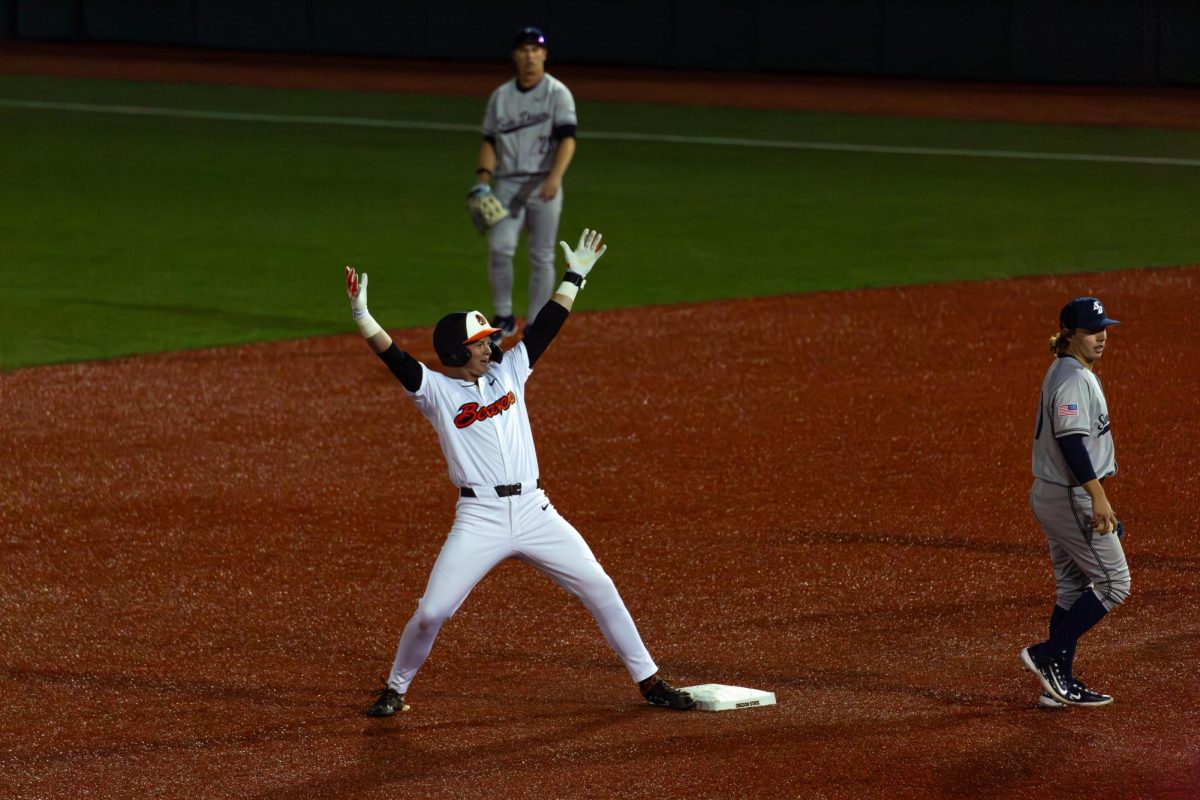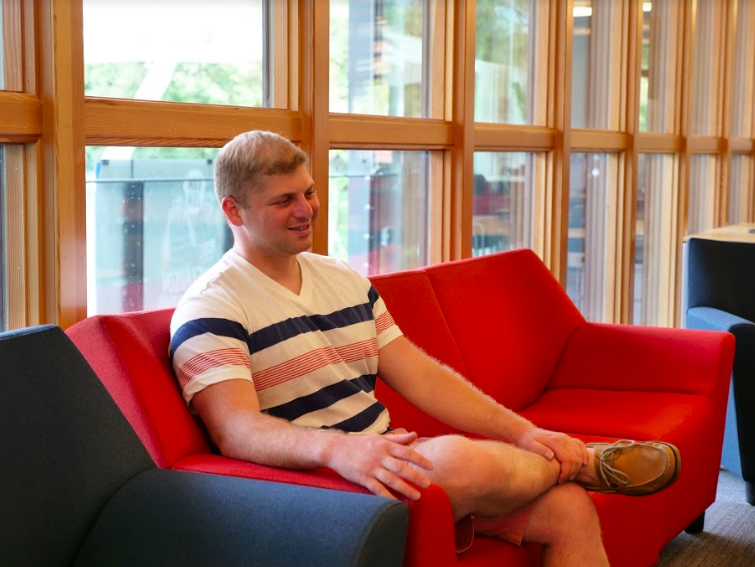‘Keeping a clean slate’: campus conservatives seek understanding in polarized times
May 29, 2018
In today’s political climate, people of differing ideologies often fail to understand one another. On a predominantly liberal college campus like Oregon State University, this means conservative students can be misunderstood.
As a whole, conservatives share the belief that the current social and political order is the result of a historical process built on deeply-ingrained wisdom, said Andrew Valls, an associate professor in political science. Despite many differences across various conservative groups, this cautious approach holds the coalition together.
“A conservative tends to be, not opposed to all attempts to change, but only in favor of smaller-scale incremental changes,” Valls said.
At OSU, right-leaning students come together through groups like College Republicans, an offshoot of the national political party built on conservative principles. For club president Peter Halajian, being a conservative means supporting limited government involvement in the economy and strong personal freedoms. In his view, increased extremism exists on the left, which Halajian feels he and others on the right must push back against.
“It is an actual check on the progress we should be making as a society,” Halajian said. “The whole goal of human civilization has been to progress, from living in a cave to building these intricate buildings. At any given time, I think there is a point where that progress goes too far or too fast.”
Historically, conservatism served as a check on the Enlightenment era, Valls said. These original liberal thinkers expressed a profound faith in human reason and humankind’s ability to remake the world in their own image.
“One of the decisive moments in the conservative movement is the French Revolution—Edmund Burke and others arguing against the revolution because it was casting aside all traditions and established norms,” Valls said.
Even with this love for tradition, the party itself has changed a great deal in the 21st century. On issues of same-sex marriage or marijuana legalization, younger conservatives are very different from their elders, Halajian said. He feels the party has become far more welcoming to people of all racial backgrounds and sexual orientations than in previous decades.
“I think the future of the party in Oregon is really good,” Halajian said. “We have a lot of people our age who are hopefully going to take over the party some day and make some really good inroads in the state.”
Another shift in the norms of the modern Republican Party came from the election of President Donald Trump, including a decreased focus on reducing government spending and an anti-establishment message. With Trump in office, Halajian has seen political polarization between parties continue to increase. Halajian believes he and other conservatives are painted as completely in step with what the president does, with some even going so far as to call them bigoted for their party affiliation.
“Gone are the days when you can go bowling with your neighbors and talk about politics,” Halajian said. “There are important things to discuss and if you cannot have a cordial conversation, you are really screaming at each other for no reason.”
While he did not vote for the president, Halajian believes Trump is not solely responsible for these issues in American politics. He has seen more interest on all sides in spectacle and flash, rather than substantive solutions.
“Forget for a second winning an election, if you want to make some change you have to work with the other side,” Halajian said. “I think people have lost sight of what politics is all about, I thought we were supposed to be focused on making our communities better and not just sniping at the other side.”
In the classroom environment, some have argued polarization can lead to unfair grading practices. Even with clear conservative majorities in both houses of Congress and the White House, there is some evidence that faculty members in the social sciences tend to be more liberal, Valls said.
“The important thing for me as a professor is to not make the class about me and what I think, and just teach the ideas and the arguments,” Valls said. “I am well-aware that in all likelihood I have students in my classroom who voted for President Trump, and I think that a college campus should be a place where people can explore their beliefs. That requires a certain amount of tolerance and civility and hopefully we can be successful with that.”
Wearing a Make America Great Again hat in classes, College Republicans Vice President Mitchell York believes he was not treated differently for identifying his support for Trump. While opposed to the president’s brash approach to politics, York felt Trump was a better choice than 2016 Democratic nominee Hillary Clinton.
“You had two pretty rough choices, but I am going to vote for the Republican over the Democrat,” York said.
Raymond Seal, a first-year OSU student and registered Republican, has never encountered anyone who treated him differently for being a conservative on campus. However, he tends to keep his personal beliefs out of the classroom whenever possible.
“There are some people that will just yell at you no matter what you say,” Seal said. “But I think it would be interesting and fun to have a conversation with any intelligent person.”
Meeting many like-minded individuals in his major, crop and soil science, Seal does not see any difficulties being a conservative on campus.
“As long as I feel like I have an intelligent platform to stand on, I feel comfortable talking about my positions,” Seal said.
When he tells people he is a conservative, York believes they expect him to follow the party exactly, just as some Republicans write off anyone aligned with the Democratic Party as believing the same things.
“Anytime someone comes up to me and tells me they are a registered Democrat, I ask follow up questions to see what they believe,” York said. “It is important to be open to hearing what someone has to say and keeping a clean slate.”


















































































![Newspaper clipping from February 25, 1970 in the Daily Barometer showing an article written by Bob Allen, past Barometer Editor. This article was written to spotlight both the student body’s lack of participation with student government at the time in conjunction with their class representatives response. [It’s important to note ASOSU was not structured identically to today’s standards, likely having a president on behalf of each class work together as one entity as opposed to one president representing all classes.]](https://dailybaro.orangemedianetwork.com/wp-content/uploads/2025/03/Screenshot-2025-03-12-1.00.42-PM-e1741811160853.png)
























